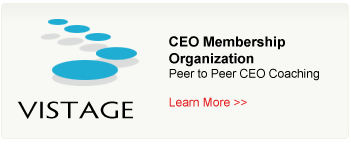Medical Products From China Are Not Toys
Are You Safe? Medical Products from China Aren’t Toys.
Who is assuring your safety in the hospital when the products are “Made in China?”
Toy companies have increased their testing of products in China after publicity about the number of children who got sick from lead or other poisons used in manufacture. Food companies and consumer products companies have begun to test ingredients in China after consumers in other countries and, now in the U.S., got sick. These are now real costs factored into sourcing decisions.
But medical products, especially blood thinners used in the operating room are a different matter: lives can be at stake on the spot as we have learned from tainted heparin supplied by Baxter to hospital operating rooms.
Most of the CEOs I know want to do the right thing. But far too many see their decisions as tradeoffs, not often as bet-the-ranch imperatives – bet the ranch for the company reputation and bet your life for the consumer. Far too many, under quarterly profits pressures, invest too little in risk management.
Perhaps some believe that U.S. agencies represent a first line of defense – if they are satisfied, we should be too. Well no government agency protected anyone from tainted heparin – an ingredient made from pig intestines and used in blood work in hospital operating rooms. And I have no confidence in the Bush administration’s protection agencies’ protection (think: the largest meat recall in history). Baxter has recalled its heparin, but it is too late for hundreds of patients.
So, what is a CEO to do? My view may be harsh, but it is the only way to protect the company and the consumer, the only way to be sure that all costs are factored into the tradeoffs.
The choice to use China as a source is an active choice. The choice to use a U.S. supplier who uses China as a source and to determine whether or not they do is an active choice. And there has been entirely too much evidence to ignore the likelihood that Chinese businesspeople would act in ways that put us at risk. There is only one approach that makes manifest sense once the decision is made to source in a country with even weaker inspection and enforcement than our own: the “manifest.”
Hazardous waste regulations here in the U.S. require a record (a manifest) be kept of each pound of waste, from its origin through transport, processing, disposal and recovery (if any). No one in the chain of people who perform any function is exempt from disclosure and the obligation to follow standards. If mercury or toxic gas or – G-d forbid — radioactive waste goes awry, it is easy to identify the who/why and remedial obligations. It is a strong incentive for end-to-end risk management planning.
The process must be applied in reverse when it comes to medical constituents. The company that incorporates the ingredient in a product sold to U.S. medical providers should require a manifest from the starting point, whatever it is, and every step of the way. Okay, a U.S. company has no right to inspect each home in the cottage industry that steams and scrubs (sometimes sick) pig intestines into powdered heparin in their basement. But the “consolidator” middleman must be held to account for their supplier qualification, testing, continuing quality assurance and removal of those who do not comply.
I have more than a dozen meetings with CEOs every month, from entrepreneurs running family businesses to executives running multi-billion dollar businesses. They are my clients and they are members of a highly principled peer group who assemble to help each other work through difficult issues. They are under intense economic pressures and face many moral choices in serving investors, customers, employees and suppliers. All too often, these men and women whose confidence I treasure are appalled at the choices made by their counterparts and what these choices do to the public reputation of all business leaders.
If our business leaders do not protect us in their choices, then we deserve the criticism in the press and the eventual overreaching and unwise regulations that are likely to be proposed.
 Countless more ordinary people of equal talent never developed the leadership core required to run the show. Why not?
Countless more ordinary people of equal talent never developed the leadership core required to run the show. Why not?

Mon, Mar 3, 2008
Leaders In the News: Bad News